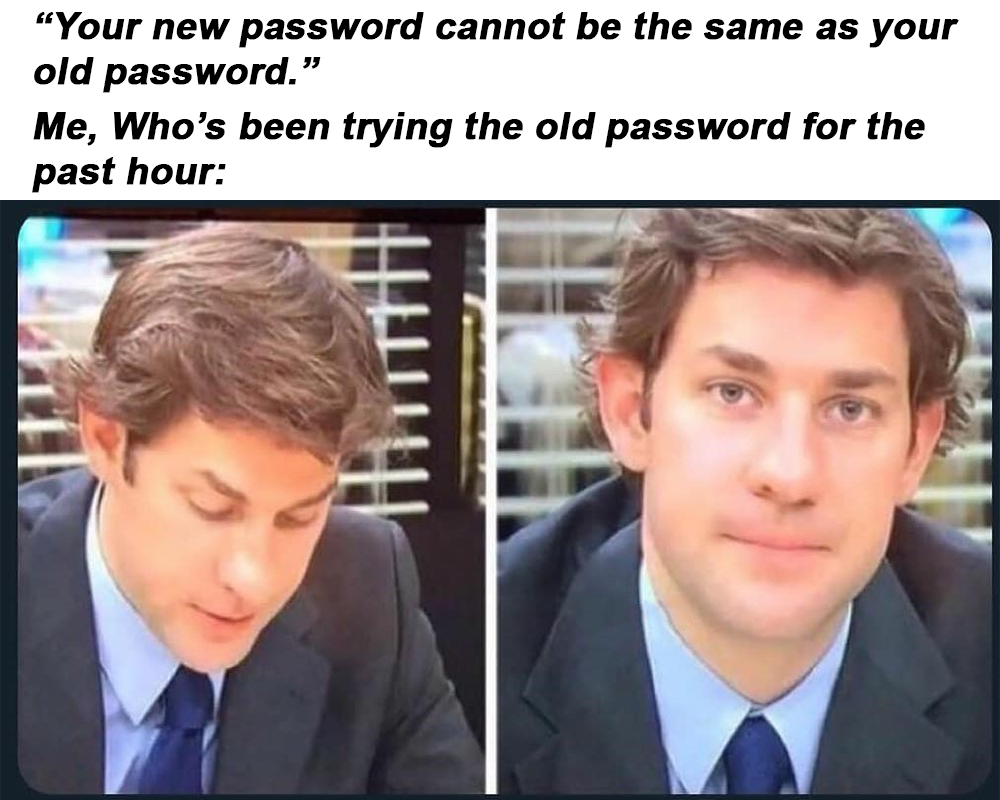this post was submitted on 11 Aug 2024
839 points (98.4% liked)
memes
10217 readers
3306 users here now
Community rules
1. Be civil
No trolling, bigotry or other insulting / annoying behaviour
2. No politics
This is non-politics community. For political memes please go to !politicalmemes@lemmy.world
3. No recent reposts
Check for reposts when posting a meme, you can only repost after 1 month
4. No bots
No bots without the express approval of the mods or the admins
5. No Spam/Ads
No advertisements or spam. This is an instance rule and the only way to live.
Sister communities
- !tenforward@lemmy.world : Star Trek memes, chat and shitposts
- !lemmyshitpost@lemmy.world : Lemmy Shitposts, anything and everything goes.
- !linuxmemes@lemmy.world : Linux themed memes
- !comicstrips@lemmy.world : for those who love comic stories.
founded 1 year ago
MODERATORS
you are viewing a single comment's thread
view the rest of the comments
view the rest of the comments

What you want is NIST 800-63b https://pages.nist.gov/800-63-3/sp800-63b.html#memsecret
Specifically sections 5.1.1.1 and 5.1.1.2.
Excerpt from 5.1.1.2 pertaining to complexity and rotation requirements:
Appendix A of the document contains their reasoning for changing from the previous common wisdom.
The tl;dr of their changes boil down to length is more important than any other factor when it comes to password security.
Edit to add:
In my personal opinion, organizations should be trying to move away from passwords as much as possible. If your IT team seems to think this system is so important that they need to rotate passwords every month, they should probably be transitioning to hardware security tokens, passkeys, or worst case, password with non-sms MFA.
Now I know nothing about the actual circumstances and I know there are plenty of reasons why that may not be possible in this specific case, but I'd feel remiss if I didn't mention it.